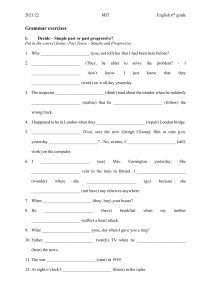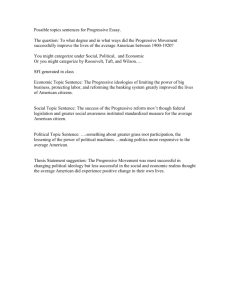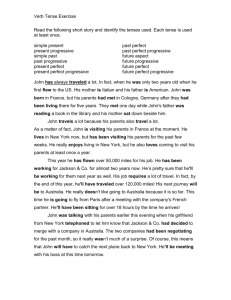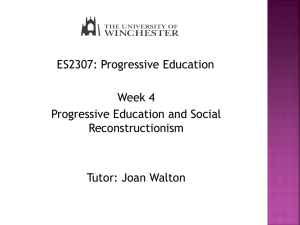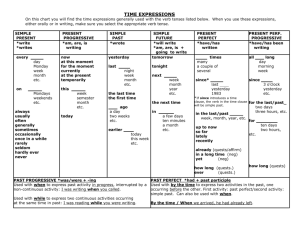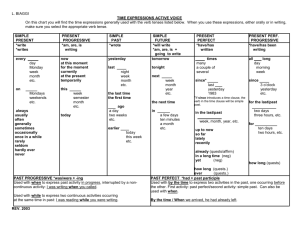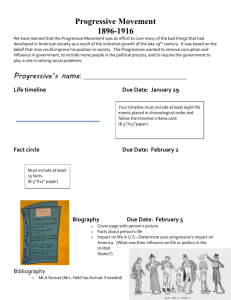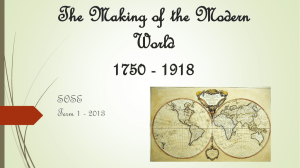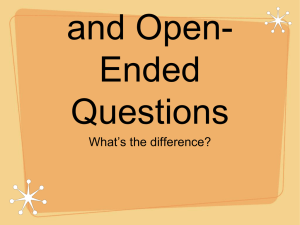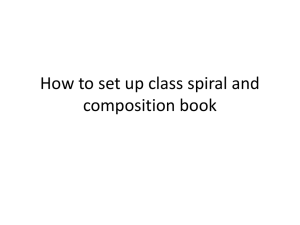Past Time Frame - Bakersfield College
advertisement
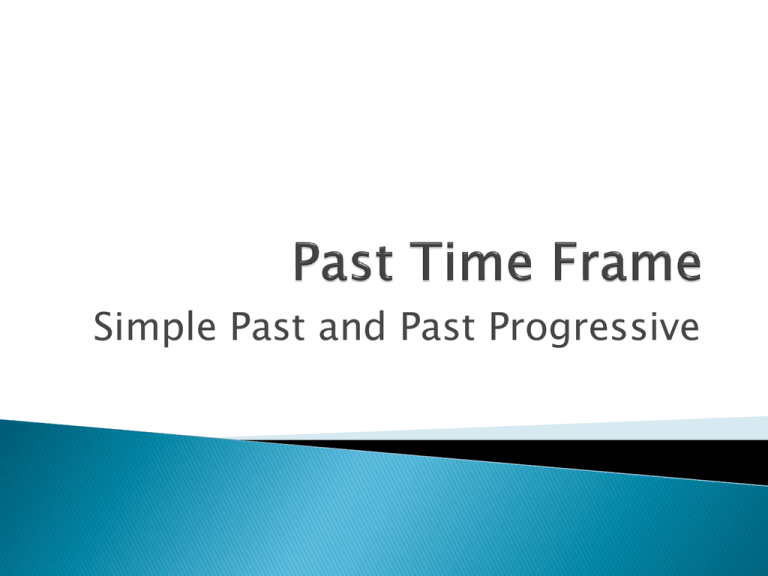
Simple Past and Past Progressive Structure: ◦ Regular verbs: add –d or –ed to the base form of the verb ◦ Irregular verbs: change forms: see/saw, go/went, do/did, etc. Use Did + base form to form a question with simple past. DO NOT use – ed with questions. Use did not + base form to form the negative. DO NOT use – ed with the negative. ◦ Did you see Maria yesterday? ◦ (Not: Did you saw Maria yesterday?) ◦ No, I did not see her. Did you talk to her? No, I didn’t talk to her. (Not: I didn’t talked to her.) Use the simple past to show the order of events, one thing after another. ◦ After I heard the news, I called my mother. Use the simple past with when or after to express cause and effect. ◦ When lightning struck, the power went out. Use the simple past tense for an event that occurred at a specified time in the past, for example with phrases such as yesterday, last week, in January, at 2:00, etc. ◦ I went home at 5:3O pm. Use the simple past to tell a story (narration) about something that happened in the past. ◦ When I was a girl, I lived on a street on the edge of town. One time our horse got stuck in our pool (which was very small and had no water at the time). We didn’t know how to get him out, so we called our neighbor… Use simple past and simple past to show one action after another in the past. Use time clauses with before, after, or when: ◦ Before he went to work, he stopped at Starbucks. ◦ After he played soccer, he went home. ◦ When he walked into the house, he greeted his wife. Structure: was/were + verb-ing Usage: Use past progressive to tell about an action in progress at a specified time in the past. ◦ When I arrived, he was giving a speech. ◦ When she came in, the teacher was talking. ◦ At 1pm, he was working. Use the past progressive to describe an activity in progress for a continuous period of time in the past. ◦ During Christmas vacation, she was visiting her family. ◦ She was smoking during the break. Use the past progressive with while for two actions occurring simultaneously (at the same time) over a period of time in the past. ◦ While I was talking on the phone, she was watching TV. ◦ He was doing his homework while I was working on the computer. ◦ While I was playing tennis, he was cleaning the yard. ◦ Completed action at specified time in past ◦ Ordered events with “before” and “after” ◦ Cause-effect with “when” or “after” ◦ Used for narrative ◦ Interrupts a continuous action (in progressive) Simple Past ◦ Action in progress over a period of time ◦ In progress at an exact moment in the past ◦ Two simultaneous actions ◦ Begins narrative ◦ Continuous action can be interrupted (action in past) Past Progressive Complete the following sentences in the past: 1. 2. 3. 4. 5. Before I came to school… After I went home yesterday… While I was driving this morning… When I ate dinner… At 10:00 this morning,…
